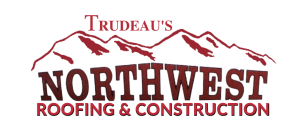Industrial roofing refers to the specialized roofing systems and materials used in commercial and industrial buildings. These buildings are typically larger in size and have specific requirements for protecting the structure and its contents from environmental elements.
Here are some key aspects related to industrial roofing:
Materials: Industrial roofs are commonly made from durable materials such as metal, single-ply membranes (e.g., TPO, PVC, EPDM), modified bitumen, or built-up roofing (BUR) systems. These materials offer strength, longevity, and resistance to weather conditions.
Design and Installation: Industrial roofs are designed to withstand heavy loads, including equipment, machinery, and maintenance personnel. The design also considers factors like drainage, insulation, and ventilation. It’s crucial to hire experienced roofing contractors who specialize in industrial roofing to ensure proper installation.
Maintenance and Repairs: Regular maintenance is essential to extend the lifespan of an industrial roof. Inspection, cleaning, and repair of any damages or leaks should be performed periodically to prevent major issues. Prompt repairs are crucial to prevent water infiltration and damage to the building’s interior.
Energy Efficiency: Industrial roofing systems often incorporate energy-saving features like reflective coatings or insulation. These elements help reduce heat absorption, decrease energy costs, and create a comfortable working environment.
Safety Considerations: Industrial roofs may have unique safety requirements due to the nature of the building’s operations. Safety measures such as walkways, guardrails, and anchor points for workers should be implemented to ensure safe access during maintenance and repairs.
Environmental Considerations: Increasingly, industrial roofing solutions are being developed with sustainability in mind. Some roofing materials are made from recycled content, while others can be recycled at the end of their lifespan. Green roof systems are also gaining popularity, providing additional environmental benefits.
Regulations and Compliance: Industrial roofing must comply with local building codes and regulations, including fire safety standards. It’s important to work with roofing professionals who are knowledgeable about these requirements to ensure compliance.
Roof Replacement: Eventually, industrial roofs will reach the end of their lifespan and require replacement. When planning for roof replacement, it’s essential to consider factors such as cost, downtime, and the most suitable materials for the specific industrial application.
Remember, industrial roofing can vary significantly depending on the specific industry and building requirements. Consulting with Trudeaus Northwest Roofing & Construction to address the specific needs of your industrial facility.
